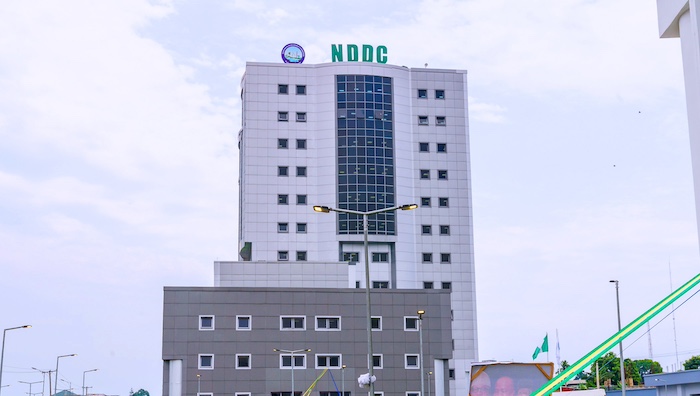On Monday, the Niger Delta Development Commission (NDDC) defended a proposed N1.911 trillion budget for 2024 before the Senate Committee on the NDDC. The budget, presented by NDDC Managing Director Dr. Samuel Ogbuku, was detailed in a session attended by top management staff and board members of the commission.
Dr. Ogbuku outlined that the 2024 budget prioritizes key areas such as security improvement, job creation, youth and women empowerment, social welfare, education, and infrastructure. He emphasized that the budget aims to transform the commission from transactional operations to transformative initiatives, dubbing it the “Budget of Renewed Hope Agenda.” This budget was developed through a participatory process involving major stakeholders in the Niger Delta Region.
“Our primary objective has been to sustain our robust foundation for sustainable economic development,” Ogbuku stated, noting that the agency’s outstanding revenue from the last fiscal year stood at N12 billion, with arrears owed by the federal government and recoveries by federal agencies totaling N170 billion.
The NDDC proposed borrowing N1 trillion, with an anticipated N324 billion contribution from the federal government and N25 billion from the ecology fund. Additionally, the commission expects N375 billion from oil companies and projects N5 billion in internally generated revenue.
Regarding expenditures, the NDDC plans to allocate N38.545 billion for personnel costs, N29.246 billion for overhead costs, and N8.785 billion for internal capital. Dr. Ogbuku highlighted that the commission intends to fund legacy projects with the proposed N1 trillion loan from commercial and development banks, while an additional N835.222 billion is earmarked for project development.
“As of April 30, 2024, the Commission’s actual aggregate revenue inflow was N683.2 billion, approximately 78 percent of the targeted N876 billion,” Ogbuku reported. This included N146.4 billion from the federal government and N394.5 billion from oil and gas companies, with a carry forward of N105 billion from 2023.
Investing in critical infrastructure is a major component of the NDDC’s fiscal strategy for 2024. Ogbuku acknowledged that the commission alone cannot address all development challenges in the Niger Delta region. To this end, the NDDC is adopting a Public-Private Partnership (PPP) model to drive sustainable development and is collaborating with the Industrial Training Fund to engage the region’s youth and reduce crime and economic sabotage.
The commission has also made provisions for paying off legacy debts, with an estimated allocation designed to phase out these debts over the next decade.
In partnership efforts, the NDDC is working with the Niger Delta Chamber of Commerce, Trade, Mines, and Agriculture (NDCCTIMA) and engaging various organizations and state governments to fine-tune processes for collaborative projects. The focus is on completing numerous ongoing legacy projects, including over 200 kilometers of roads across the Niger Delta region by the end of the 2024 fiscal year.
Dr. Ogbuku stressed that while the NDDC budget cannot meet all the demands of the rural communities due to limited resources, the commission is committed to providing support for the greater number of people. The commission’s fiscal reforms will introduce new performance management frameworks to regulate overhead costs and shift from line-item budgeting to sectoral fund allocation to enhance productivity.
Senator Asuquo Ekpenyong, Chairman of the Senate Committee on the NDDC, urged the agency to ensure the prompt submission of their annual budgets. Senator Orji Uzor Kalu, a committee member, emphasized that the 10th Senate would intensify its oversight functions on the NDDC’s projects and activities.
